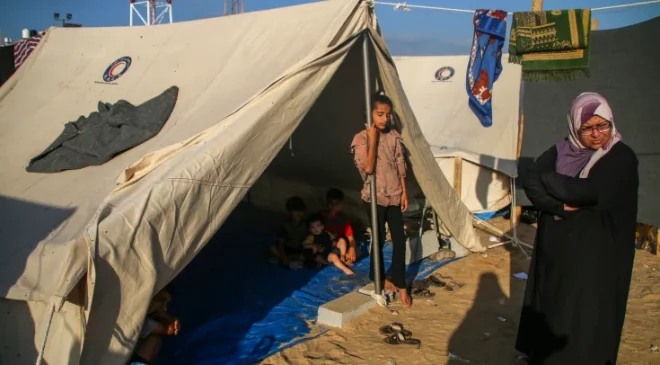
On October 7, Hamas-led gunmen launched the worst massacre of civilians in Israeli history, killing an estimated 1,400 people and taking more than 200 hostage. The Israeli military then launched airstrikes unprecedented in intensity on Gaza, killing an estimated more than 5,900 Palestinians, including over 1,300 women, and exacerbating the already dire humanitarian crisis in Gaza after more than 16 years of Israel’s closure.
Although there is little data on current trends in Gaza, women and girls typically are at increased risk of sexual violence in times of armed conflict. Survivors of sexual violence need immediate support, including medical assistance. They need treatment for injuries and sexually transmitted diseases and access to medical supplies, including emergency contraception and treatment, to reduce the risk of HIV transmission. They also need comprehensive sexual and reproductive health services as well as psychosocial support. As Gaza struggles to treat thousands of people injured by Israeli airstrikes, these needs will likely go largely unmet.
Families are rationing water because Israel has cut off water supplies and electricity to Gaza’s civilian population, which amounts to collective punishment, a war crime. According to the UN, only a small fraction of the water supplied by Israel is getting through, and only in southern Gaza. People are getting about three liters of water per day; the World Health Organization recommends between 50 and 100. No more than 20 trucks of humanitarian aid, including bottled water, entered Gaza via Egypt between October 21 and 23, only four percent of the daily average prior to October 7. All of this poses additional risks to health and life for women and girls. Their suffering is one more reason that Israel’s allies, especially the United States, should press it restore the flow of electricity and water, allow fuel into Gaza, and open its crossings for humanitarian aid.
